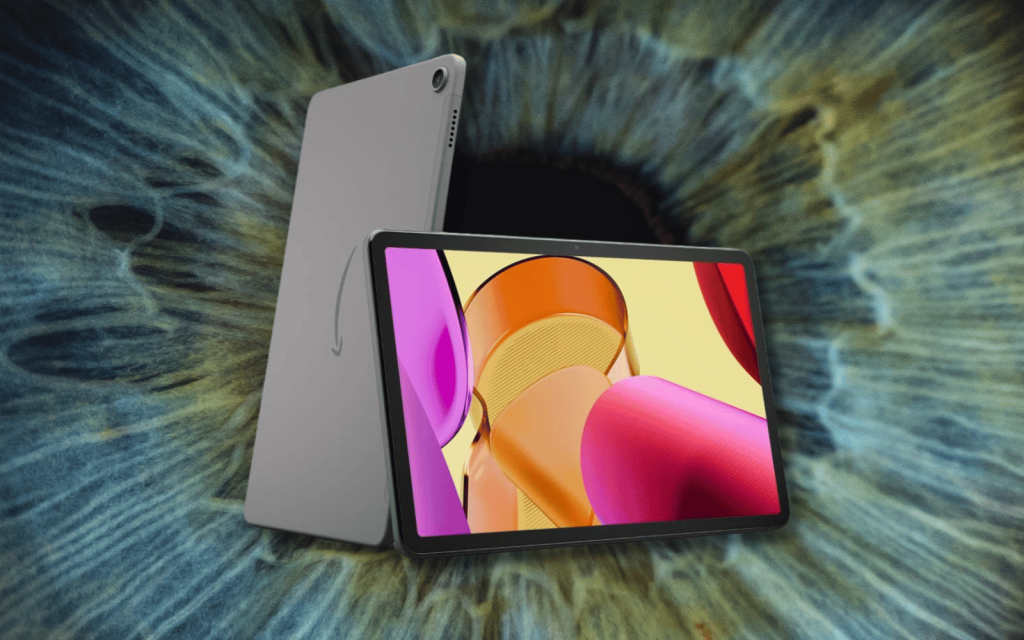Amazon dropped details about its latest crop of smart home products last night but one of the most impressive items announced was, more or less, a software update. The online retail giant is bringing new accessibility features to its Fire Max 11 tablet and its Echo Show devices. Of these, the Fire Max 11 update is the most impressive.
Fire Max? What did he do?
That’s because Amazon intends to launch eye-based navigation on the latest slate in its roster. The feature is called Eye Gaze and is designed to help those with mobility or speech issues navigate the tablet more effectively. As the name suggests, it’ll do this by using the front camera to track the user’s eyes.
Don’t go thinking that you’ll be able to co-opt the feature to become the fastest sniper in Fortnite, however. The list of functions is predetermined and includes making and accepting calls, controlling smart home functions, and navigating media. So you should be able to select a new series to binge on Prime Video, things like that.
Amazon fully expects that there will be some teething issues, saying that it is “still day one for this technology”. The company added that “we’re very excited about its potential”. They should be but it would probably be a decent idea for the rest of us to manage expectations. Just for a while. Eye Gaze will launch on Amazon Fire Max 11 tablets later this year as a software update.
Found in translation
Another update-based accessibility feature is headed to the company’s Echo Show range of devices in the near future. Unlike Eye Gaze, we’re fairly sure this one won’t work here at home. Echo Show devices and the Alexa app are getting the ability to transcribe calls, displaying captions on the screen.
These conversations can also be translated into one of ten languages but they’re the usual suspects. English, French, Spanish, and Portuguese are the main candidates but the list of launch countries will give you an idea of the rest of them. The feature launches later this year in Canada, Mexico, Great Britain, Germany, France, Italy, Spain, and the US, while Europe will get the call captions feature without the benefit of translation.




